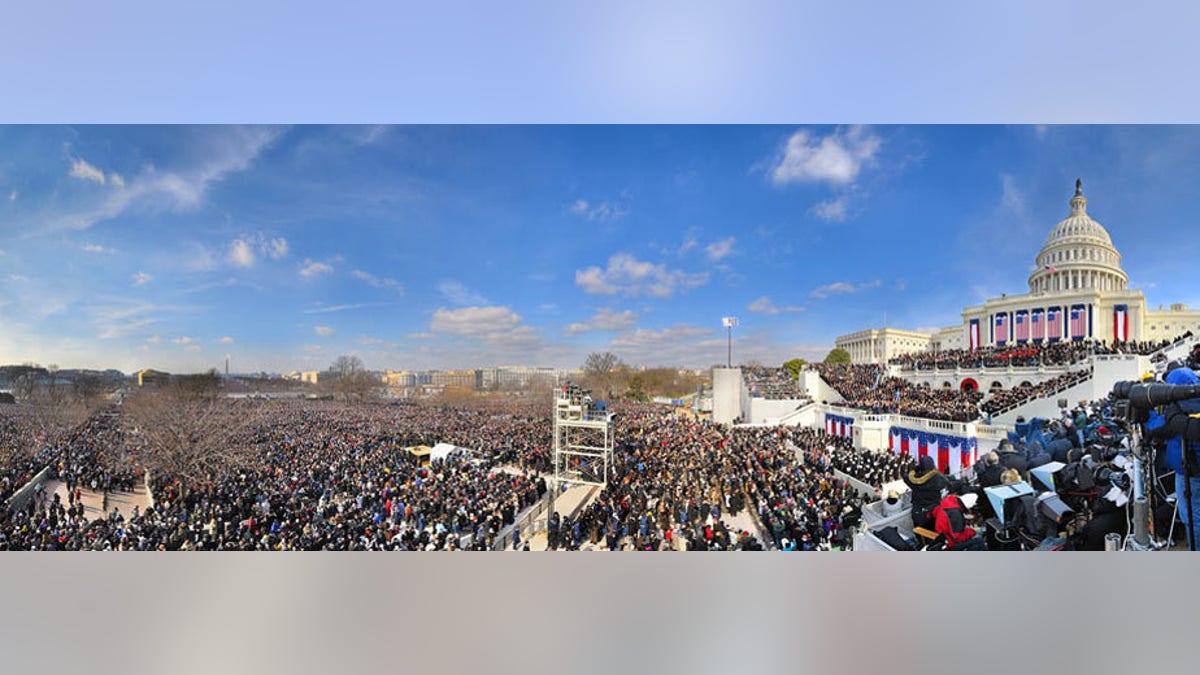
Newly uncovered documents directly challenge statements made by President Obama and other officials who insisted that the National Security Agency was not abusing its authority or knowingly violating Americans' privacy.
The Washington Post reported on an audit and other secret documents that allegedly show the NSA broke privacy rules and overstepped its authority thousands of times since it was granted new powers in 2008.
The May 2012 audit specifically tallied 2,776 incidents from the prior year where communications were improperly gathered and handled. Some of the alleged abuses were inadvertent, stemming from typos and other errors, while others were more severe.
Yet Obama, in a press conference held last Friday, claimed there were no "abuses" of the system.
Daily politics news delivered to your inbox: sign up for our newsletter
"If you look at the reports ... all the stories that have been written, what you're not reading about is the government actually abusing these programs and listening in on people's phone calls or inappropriately reading people's emails," Obama said. "What you're hearing about is the prospect that these could be abused. Now, part of the reason they're not abused is because these checks are in place, and those abuses would be against the law and would be against the orders of the FISC (Foreign Intelligence Surveillance Court)."
The documents disclosed by the Post, however, describe actual breaches and not merely the prospect for them. Further, they show what intelligence officials have subtly acknowledged in the past -- that the checks and balances in place do not always suffice.
The Post, for instance, reported that the NSA was embarking on a new collection effort for months before the surveillance court stepped in and ruled it unconstitutional. The agency was apparently storing international data in a repository with U.S. and foreign emails, with no way to filter out Americans' communications. Months later, the Foreign Intelligence Surveillance Court ruled against that effort.
In another incident in February 2012, more than 3,000 files on phone records were unlawfully stored despite the court ordering the NSA to destroy them.
Statements by other top intelligence officials could also be called into question based on the reporting.
NSA Director Gen. Keith Alexander said last week at a cyber-conference in New York that "no one has willfully or knowingly disobeyed the law or tried to invade your civil liberties or privacies" and "there were no mistakes like that at all."
The Post report also questioned a claim last year by Alexander in which he said "we don't hold data on U.S. citizens."
The NSA, though, claims that it strives to protect privacy and ensure any problems are swiftly corrected.
"NSA's foreign intelligence collection activities are continually audited and overseen internally and externally. When NSA makes a mistake in carrying out its foreign intelligence mission, the agency reports the issue internally and to federal overseers -- and aggressively gets to the bottom of it," an NSA official told Fox News.
The Washington Post report is already drawing renewed scrutiny from Congress. Senate Judiciary Committee Chairman Patrick Leahy, D-Vt., said he planned to hold another hearing in the wake of the report.
"The American people rely on the intelligence community to provide forthright and complete information so that Congress and the courts can properly conduct oversight. I remain concerned that we are still not getting straightforward answers from the NSA," Leahy said in a statement. "I plan to hold another hearing on these matters in the Judiciary Committee and will continue to demand honest and forthright answers from the intelligence community. Using advanced surveillance technologies in secret demands close oversight and appropriate checks and balances, and the American people deserve no less than that."




